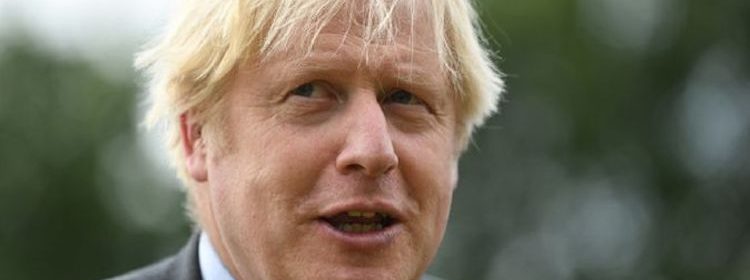Brexit Britain outsmarts Brussels with ‘mammoth’ legislation to dismantle hated EU rules

Brexit deal could 'unravel’ over failed fishing deal says expert
We use your sign-up to provide content in ways you’ve consented to and to improve our understanding of you. This may include adverts from us and 3rd parties based on our understanding. You can unsubscribe at any time. More info
UK MPs are scrutinising the draft Online Safety Bill which would see platforms penalised for failing to protect users from illegal content. The legislation goes a step further from the EU’s Digital Services Act (DSA) as it also protects users from content that may be lawful but that could cause physical or psychological damage.
Caroline Dinenage, a former British minister who oversaw the Online Safety Bill until September, told Politico: “The UK started work on this ahead of the EU with a blank piece of paper.
“There has been piecemeal legislation in other countries around the world, dealing with various aspects of online safety, but no administration has ever tried to regulate the online world as comprehensively as the Online Safety Bill.
“It really is a mammoth piece of legislation.”
In a bid to hit back at the UK’s attempt to outsmart the bloc, the EU Commission said that Brussels has “opted for a set of clear and precise rules that are directly applicable to providers, unlike the UK approach for example”.

The lack of cooperation between the UK and the EU on the legislation has been attributed to the two blocs’ cold relationship due to the ongoing Brexit tensions.
An EU official admitted: “It’s not a secret, we have concerns about the UK implementing the Withdrawal Agreement to the letter so our relationship on digital technology should be seen in light of our general relationship with the UK post-Brexit.”
A group of MPs, however, travelled to Brussels on Monday in order to discuss the differences between the two approaches.
But key MEPs scrutinising the EU’s legislation were absent from the meeting as they were busy listening to Facebook whistleblower Frances Haugen’s testimony.
READ MORE: Starmer shamed for earning £247-an-HOUR from second job
Haugen, a former Facebook employee who worked as a product manager on the company’s civic misinformation team, has accused the social media giant of repeatedly prioritising profit over clamping down on hate speech and misinformation.
Haugen said that Europe’s draft rules requiring tech firms to do more to tackle illegal online content could become a global gold standard for a safer online world if they are beefed up.
Her testimony to a European Parliament committee comes after stops in London, Lisbon and Berlin, and at a time when EU lawmakers are debating whether to firm up the DSA proposed by EU antitrust chief Margrethe Vestager.
“The Digital Services Act that is now before this Parliament has the potential to be a global gold standard,” Haugen said.
DON’T MISS:
Brexit: EU dares UK to show hand over ‘egregious’ ECJ threat [LIVE BLOG]
Nicola Sturgeon backs down on Scottish independence push [INSIGHT]
Boris on brink: Emergency debate TODAY as PM left fighting for job [ANALYSIS]

“It can inspire other countries, including my own, to pursue new rules that would safeguard our democracies but the law has to be strong and its enforcement firm. Otherwise, we will lose this once in a generation opportunity to align the future of technology and democracy,” she told EU lawmakers.
Haugen said the DSA should be expanded to include online content that violates a platform’s terms and conditions, and should force platforms to take responsibility for risks beyond the spread of illegal content such as election manipulation and disinformation about the harms of mental health.
Haugen said news media content should not be excluded from the rules because disinformation campaigns could still game the system by exploiting digital platforms used by publishers.
In a blog post ahead of the EU hearing, Facebook rejected Haugen’s claims that it prioritises profits over user safety.
“Contrary to recent claims about our company, we’ve always had the commercial incentive to remove harmful content from our platform,” Monika Bickert, vice president of content policy, wrote in the blog.
She said Facebook would spend more than $5 billion this year on safety and security.
Source: Read Full Article
